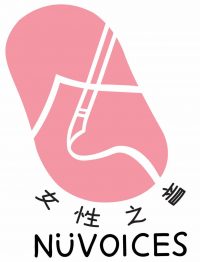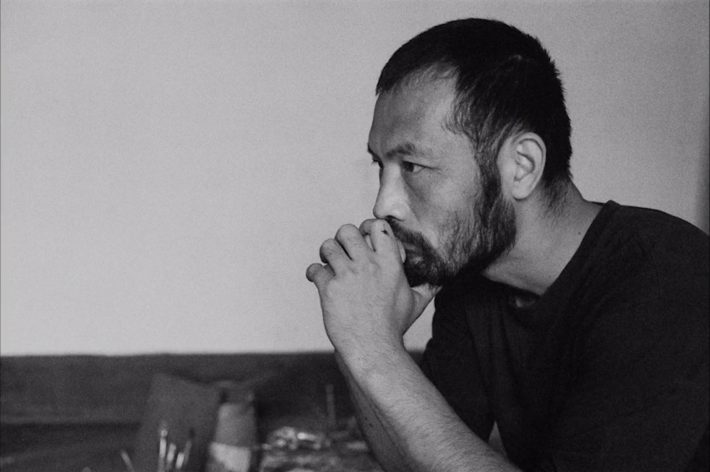BY ANNABELLE JARRETT
Hu Jie is not a household name in China.
Yet the Chinese documentary filmmaker and visual artist, renowned for the historical and political themes in his works, is perhaps one of the most important contemporary creators documenting modern Chinese history and the brutal realities of Maoist China – work that has placed him under intense pressure from the Chinese government.
Hu is best known for his trilogy of documentaries on Maoist China, Searching for Lin Zhao’s Soul (寻找林昭的灵魂 – 2004), Though I Am Gone (我虽死去 – 2007) and Spark (星火 – 2013). Each of these films examine the traumas of China’s past, focusing on the tumultuous Great Leap Forward of 1958-62 and the 1966-76 Cultural Revolution. Spark – about an underground journal in 1960 – was awarded the top prize at the 2014 Taiwan Independent Documentary Festival for its searing portrayal of the 1959 Great Famine that came as a result of the doomed Maoist ideological crusade.
Last month, distributor Icarus Films released Spark and The Observer (2019), a documentary about Hu by Italian director Rita Andreetti. Both works, as well as other crucial pieces by Hu, are available now as part of Icarus Films’ independent Chinese movies collection dGenerate Films, which is curated by producer Karin Chien.

Contemporary Mainland Chinese cinema has attracted attention recently for its box office smash hits espousing patriotic sentiment, particularly the 2017 Wolf Warrior 2 and 2019 The Wandering Earth. With such a massive domestic market, fuelled by a rapidly rising middle class hungry for cultural output, the Chinese Communist Party keeps a close eye over what films are produced and released. Films deemed harmful to the interests of the Party and its “socialist core values” are heavily censored, if not denied distribution altogether. Film has the power to shake and disrupt, but only when it can be seen. Such an environment makes the work of dissident creators all the more important.
Born in 1958 in Shandong province, Hu, like many contemporary Chinese artists, grew up in tandem with the political turmoils of twentieth century China. He grew up in a military family, joining the People’s Liberation Army after school. Having also studied painting, he began experimenting with documentary film in the 1990s, releasing his first documentary in 1994.

In making Spark, Hu travelled to Lanzhou in Gansu province. Spark is framed through the experience of a number of young intellectuals during the Great Leap Forward. Shocked at the true extent of famine around them, these young men and women decided to start a magazine in 1960, named Spark, in order to alert political officials and the wider public to the true extent of the horrors. Hu’s is an oral history: the film intersperses interviews with surviving contributors with extracts read from Spark’s two issues.
One such excerpt from an essay titled ‘Peasants, Serfs and Slaves’, reads “on the so-called bridge to communism, peasants actually became the state’s slaves and serfs”. In another excerpt the author asks, “why isn’t there enough to eat?” Originally hopeful that the Central Committee would respond to their call, the continuing mass deaths around them led the contributors to become increasingly disillusioned with the Party and the communist vision altogether.

Rather than simply ignored, their efforts to speak out were treated as counter-revolutionary acts, leading to prison sentences for 43 contributors and sympathisers. The final minutes of the documentary mourn those who lost their lives for the cause: there is Zhang Chunyuan, executed for “forming counterrevolutionary cliques,” Peking University student Lin Zhao, and sympathetic county party secretary Du Yinghua.
Like this, Hu’s works contribute to an existing genre of Chinese works known as scar literature (伤痕文学). Scar literature and film originally emerged in the immediate post-Mao period of the late 1970s, portraying the widespread societal suffering and emotional traumas that came as a result of the era’s policies and radical class politics. Such works, including Lu Xinhua’s short story Scar (伤痕 – 1978) and Xie Jin’s film Hibiscus Town (芙蓉镇 – 1986) sought to mourn the losses of the era and heal “wounds”, both physical and emotional.

However, not all of Hu’s works deal with China’s past traumas. A number of his earlier works, like Remote Mountains (远山 – 1995) and On the Seaside (在海边 – 2003) explore the hardships of China’s poor and rural working classes in contemporary times. In Remote Mountains, Hu travels to Qinghai province in China’s north west to document the experience of young men working in the mines of the Qilian Mountains. The footage is fragmented, offering brief glimpses into the long and laborious hours worked by these young men, often far from home. In one scene, some men sit and rest to share a packed lunch, their faces and bodies blackened entirely with soot. In another, one man sings an old love song as they disappear once more into the mine.
With such topics as these, it’s little wonder that Hu’s works have attracted the attention of State officials. As far as the Party is concerned, dissident works such as these directly threaten the social fabric of Chinese society, one in which party rule is legitimised through its provision of security and stability. Hu’s trilogy of the Maoist period paints a picture of State complicity in widespread suffering, calling into question the morality of continuing Party rule today. His portrayal of China’s underclass of migrant workers contradicts the ideal image of China as increasingly wealthy and developed that is being promoted.

In The Observer, we see how this friction between Hu’s form of honesty and the Party line plays out. The film opens with footage of police forcibly dispersing organisers of the 2014 Beijing Independent Film Festival, threatening to beat those who don’t comply. It is subsequently explained that the festival was cancelled, with the entire archive seized, due to Spark’s inclusion on the programme. The Observer details another occasion in which Hu was actively censored by the State, when his film Though I Am Gone was due to be screened at the Yunnan Multicultural Visual Fest. After travelling to attend the festival, Hu is subsequently informed that the festival was cancelled due to the inclusion of his film.
The Observer ends with Hu’s preparations for his 2014 art exhibition, Let There Be Light. Comprised of paintings and woodcut prints depicting scenes of famine in China, the exhibition was due to take place in Tianjin’s TEDA Gallery. Despite assurances to concerned authorities that there would be no video content, the planned opening night discussion led by Hu was cancelled. The exhibit later closed after only three days.

Considering the current political climate, such accounts of people’s efforts to combat State control and authority are as pertinent as ever. Hu’s films don’t sit easy with the viewer – these are raw accounts of China and its history that people aren’t supposed to see. They can prove difficult to watch, with footage depicting harrowing scenes and subjects such as a teacher’s corpse after she was beaten to death by her students during the Cultural Revolution, and the toll of hard labour and crippling migration policies on China’s rural working class. Yet these are stories that demand to be heard – and Hu asks us not to look away.
Both Spark and The Observer are now available on Icarus Films here:


